 Even though the franchise has flourished for more than 20 years, there’s never been a definitive history written about Pokemon. Daniel Dockery, an entertainment writer who got his start at Cracked, is hoping to change that this October with the release of Monster Kids: How Pokemon Taught a Generation to Catch Them All.
Even though the franchise has flourished for more than 20 years, there’s never been a definitive history written about Pokemon. Daniel Dockery, an entertainment writer who got his start at Cracked, is hoping to change that this October with the release of Monster Kids: How Pokemon Taught a Generation to Catch Them All.
In addition to delivering an electrifying portrait of Pikachu, Dockery will examine the developers behind Pokemon, the fans who grew up playing it, and the slew of imitators (including Digimon, Cardcaptors, and Yu-Gi-Oh!) that popped up in its wake:
More than just a simple journey through the history of Pokémon, Daniel Dockery offers an in-depth look at the franchise’s many branches of impact and influence. With dozens of firsthand interviews, Monster Kids covers its beginnings as a Japanese video game created to recapture one man’s love of bug-collecting as a child before diving into the decisions and conditions that would ultimately lead to that game’s global domination. With its continued growth as television shows, spin-off video games, blockbuster movies, trading cards, and toys, Pokémon is a unique and special brand that manages to continue to capture the attention and adoration of its eager fanbase 25 years after its initial release.
Monster Kids: How Pokemon Taught a Generation to Catch Them All will be released by Running Press on October 4.
UPDATE (10/22/22): Monster Kids is now available in stores, and Dockery recently shared an excerpt with Polygon about Pokemon‘s American debut to celebrate.



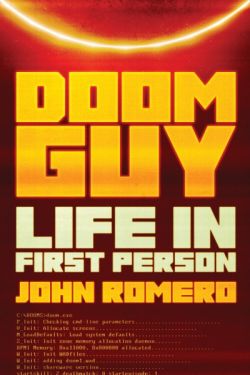 John Romero’s about to make you… listen to his life story.
John Romero’s about to make you… listen to his life story.
 Get over here… and learn more about the release of the next book from David L. Craddock.
Get over here… and learn more about the release of the next book from David L. Craddock.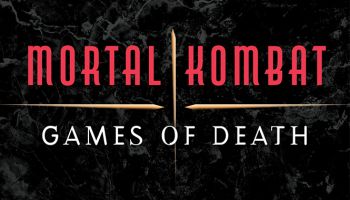


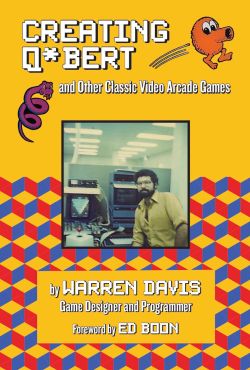 Warren Davis spent two decades in the game industry and he is ready to talk some @!#?@!.
Warren Davis spent two decades in the game industry and he is ready to talk some @!#?@!.
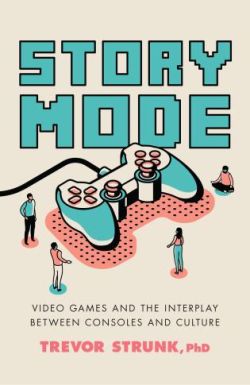 Trevor Strunk is the host of the
Trevor Strunk is the host of the 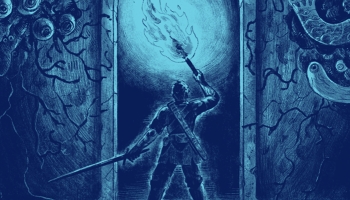
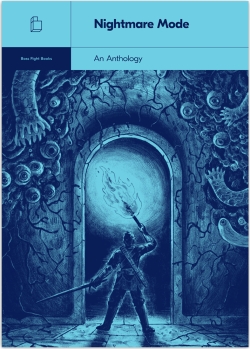 Promising “a fresh angle on a familiar topic,”
Promising “a fresh angle on a familiar topic,” 


 If you want a good overview of the video game industry’s early days, Steven L. Kent’s The Ultimate History of Video Games is a great place to start. Beginning with a quick primer on the pinball craze of the 1930s, the author quickly introduces readers to touchstones like Spacewar, Ralph Baer’s Brown Box, and Pong. Hitting all the highlights from the next 30 years over the book’s 600 pages, the story culminates with the launch of the PlayStation 2, GameCube, and Xbox in 2000-2001.
If you want a good overview of the video game industry’s early days, Steven L. Kent’s The Ultimate History of Video Games is a great place to start. Beginning with a quick primer on the pinball craze of the 1930s, the author quickly introduces readers to touchstones like Spacewar, Ralph Baer’s Brown Box, and Pong. Hitting all the highlights from the next 30 years over the book’s 600 pages, the story culminates with the launch of the PlayStation 2, GameCube, and Xbox in 2000-2001.
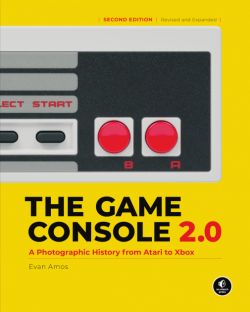 Evan Amos’s
Evan Amos’s